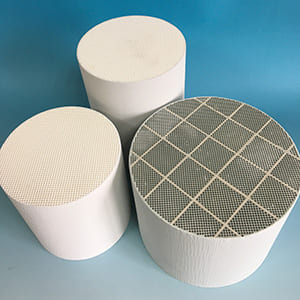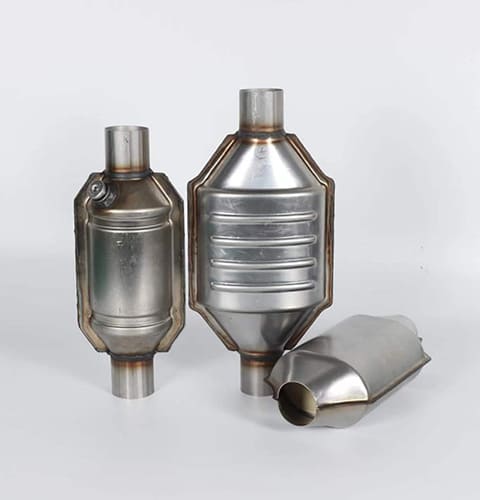Why are construction vehicle operators increasingly choosing aftermarket DPFs? Are they more cost-effective than OEM parts? Do they deliver the same level of performance? The rise of aftermarket Diesel Particulate Filters (DPFs) is reshaping the way heavy-duty construction vehicles are maintained. Let’s explore why this shift is happening and what it means for the industry.
What Are Aftermarket DPFs, and Why Are They Popular?
Aftermarket DPFs are third-party Diesel Particulate Filters designed to fit and function like OEM (Original Equipment Manufacturer) filters. Unlike OEM filters, aftermarket DPFs are often significantly cheaper, easier to source, and available for a wider range of vehicle models.
Why the buzz? First, aftermarket DPFs offer comparable performance in reducing diesel emissions. These filters trap harmful soot and particulate matter, ensuring vehicles meet stringent emissions standards. Second, their affordability makes them accessible to businesses operating on tight budgets, especially in the construction industry.
With the rising demand for cost-effective solutions, aftermarket DPFs have emerged as a preferred choice for construction vehicle owners.
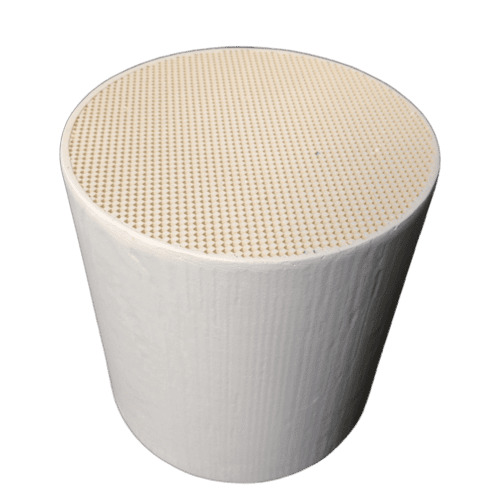
What Makes Aftermarket DPFs Ideal for Construction Vehicles?
1. Cost-Effectiveness Without Compromising Quality
OEM DPFs are notoriously expensive, with prices sometimes exceeding $5,000 per unit. In contrast, aftermarket DPFs often cost a fraction of that, saving construction companies thousands of dollars annually. For fleet operators managing multiple vehicles, these savings are a game-changer.
However, affordability does not mean reduced quality. Reputable manufacturers adhere to EPA and CARB compliance standards, ensuring aftermarket filters meet strict emissions regulations. For businesses, this translates to reduced costs without compromising operational integrity.
2. Enhanced Availability and Quick Turnaround
Construction projects rely on tight schedules, making downtime expensive. When an OEM DPF fails, sourcing a replacement can take weeks due to limited inventory and supply chain delays. Aftermarket DPFs solve this problem by offering quicker delivery times and a broader range of options for various construction vehicle brands, such as Caterpillar, Volvo, and Komatsu.
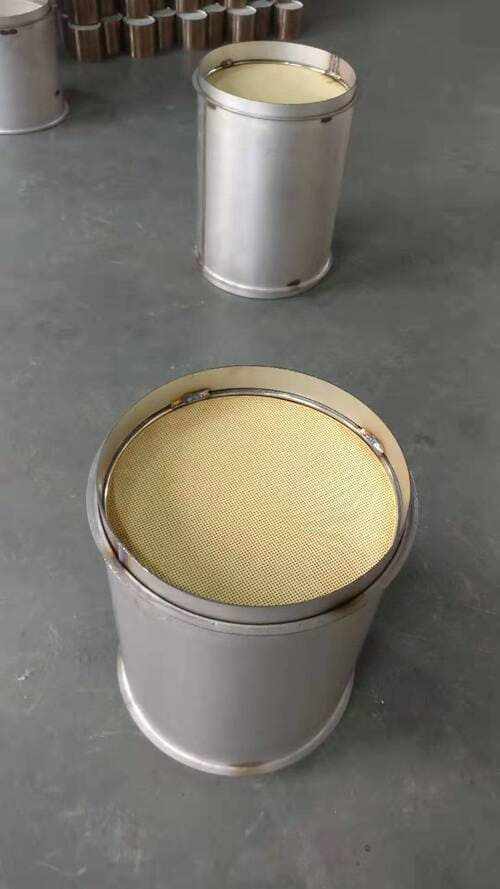
3. Longevity and Durability in Tough Environments
Construction sites expose vehicles to harsh conditions: dust, heavy loads, and extended idling. Modern aftermarket DPFs are built using advanced materials that withstand these challenges. Features such as ceramic substrates and metallic coatings enhance durability, extending the filter’s lifespan even in rugged conditions.
4. Simplified Maintenance
Aftermarket DPFs are designed for easier cleaning and maintenance, reducing long-term operational costs. Many of these filters are compatible with professional regeneration and cleaning services, ensuring they remain efficient over time. This simplified maintenance process ensures minimal downtime, keeping construction projects on track.
Are Aftermarket DPFs Environmentally Friendly?
Yes! Aftermarket DPFs play a critical role in reducing harmful emissions. Like OEM filters, they capture up to 90% of particulate matter, ensuring vehicles comply with Tier 4 Final and Euro 6 emissions standards. For companies striving to maintain sustainability goals, aftermarket filters are a viable solution.
Additionally, many aftermarket options are made from recyclable materials, further minimizing their environmental footprint.
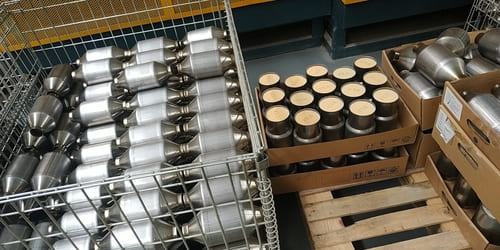
What Should You Look for in an Aftermarket DPF?
While aftermarket DPFs offer many advantages, choosing the right one is crucial. Here are a few factors to consider:
- Compliance Standards: Ensure the filter meets EPA and CARB requirements.
- Compatibility: Verify the DPF fits your specific vehicle make and model.
- Reputation: Choose reputable manufacturers with proven performance records.
- Warranty: Look for options that provide warranties to safeguard your investment.
By prioritizing these factors, construction vehicle owners can ensure they select reliable and durable aftermarket filters.
More Questions About Aftermarket DPFs?
Do Aftermarket DPFs Affect Engine Performance?
Not at all! Properly designed aftermarket DPFs maintain seamless engine operation, ensuring fuel efficiency and power delivery remain unaffected.
Are Aftermarket DPFs Legal?
Yes. As long as they meet EPA and CARB regulations, aftermarket DPFs are fully legal for use in construction vehicles.
How Do They Compare to OEM DPFs in Lifespan?
With proper care and maintenance, aftermarket DPFs offer a comparable lifespan to OEM filters, making them a practical choice for construction fleets.
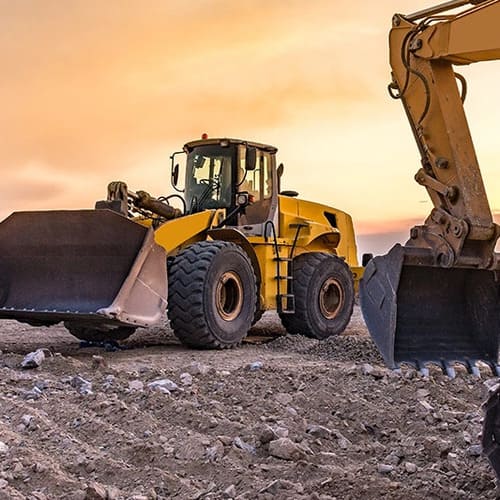
Conclusion
For construction vehicles, aftermarket DPFs represent a cost-effective, reliable, and environmentally friendly alternative to OEM filters. Their affordability, availability, and durability make them indispensable for businesses aiming to optimize their fleet’s performance without breaking the bank.
As emissions regulations become stricter, aftermarket DPFs provide a smart solution for staying compliant while keeping operational costs low. The future of heavy-duty vehicles is here, and aftermarket DPFs are leading the charge.

